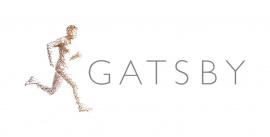- View more resources from this publisher
 Gatsby Charitable Foundation
Gatsby Charitable Foundation
Mathematics Enhancement Programme Primary (MEPP) Report
This paper sets out to give an understanding of what was distinctive about MEPP training and teaching, and summarises the findings from a research project to evaluate its effectiveness in improving students' achievement in mathematics.
During the development of the programme the government implemented its National Numeracy Strategy in primary schools. This overtook MEPP through its sheer size and scale as a major government initiative. The programme described in this paper was based on early Gatsby-funded work carried out at Barking and Dagenham by the National Institute of Economic and Social Research, looking at best practice from overseas. Modifications of that early work developed by MEPP produced a distinctive style of teaching mathematics which was:
*structured
*whole-class
*interactive
*designed to accommodate children with special needs.
Such changes in classroom practice were achieved through a programme of:
*initial exposure of primary teachers to project ideas
*collegial in-school support for MEPP ways of working
*school visits and support by MEPP area co-ordinators
*external monitoring of classroom practice and evaluation of students' mathematical knowledge and skills.
Aims of MEPP
With grants received over the period of five years, the MEPP project set out to raise the mathematical achievement of primary students by placing particular emphasis on the quality of teaching and the structure and content of lessons.
MEPP believed that students should:
*have a better understanding of numbers
*learn essential number facts and skills
*use what they already know to work out something they do not
*extend the range of mental images and strategies which they need in order to work with numbers flexibly and efficiently
*develop an approach in which mental methods are always considered first
*build pencil and paper methods from mental methods
*develop an appropriate mathematical language to enable them to talk confidently about their mathematics
Show health and safety information
Please be aware that resources have been published on the website in the form that they were originally supplied. This means that procedures reflect general practice and standards applicable at the time resources were produced and cannot be assumed to be acceptable today. Website users are fully responsible for ensuring that any activity, including practical work, which they carry out is in accordance with current regulations related to health and safety and that an appropriate risk assessment has been carried out.
Downloads
-
Mathematics Enhancement Programme report 716.82 KB




